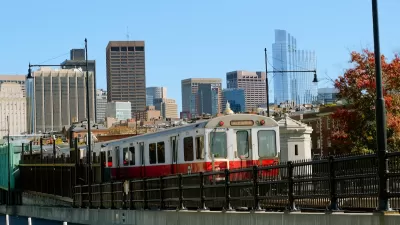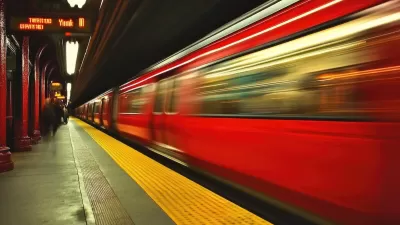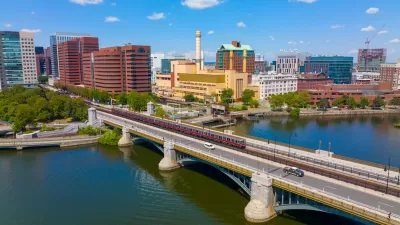The board voted to include the T’s on-demand paratransit service in the discount program, prompting concerns about cost.

The Massachusetts Bay Transportation Authority (MBTA) board approved a new 50 percent discount for low-income riders on its transit services, including paratransit service, reports Bruce Mohl for CommonWealth Beacon. “Details on enrollment and income verification are still being worked out, but the half-off fare will be available to anyone earning less than 200 percent of the federal poverty level, which is about $30,120 for a single person or $62,400 for a family of four.”
T officials expressed concern about including the paratransit program in the discount, which is expected to increase ridership in a system already shortstaffed. The RIDE program is projected to cost “well over half” of the total discount fare program cost. “Gov. Maura Healey in her budget proposal for the coming fiscal year included $45 million collected from the millionaire tax to help pay for the low-income fare in its first year of operation. It’s unclear whether the House and Senate will support that level of funding in the coming fiscal year, let alone in future years.”
According to Brian Kane, the executive director of the MBTA Advisory Board, “the average cost to the T of a RIDE trip in the core service area is $104. Stiehler said the average cost to the T per trip in the core service area is $72, while the current fare is $3.80.”
FULL STORY: MBTA board approves low-income fare

Study: Maui’s Plan to Convert Vacation Rentals to Long-Term Housing Could Cause Nearly $1 Billion Economic Loss
The plan would reduce visitor accommodation by 25,% resulting in 1,900 jobs lost.

North Texas Transit Leaders Tout Benefits of TOD for Growing Region
At a summit focused on transit-oriented development, policymakers discussed how North Texas’ expanded light rail system can serve as a tool for economic growth.

Why Should We Subsidize Public Transportation?
Many public transit agencies face financial stress due to rising costs, declining fare revenue, and declining subsidies. Transit advocates must provide a strong business case for increasing public transit funding.

How to Make US Trains Faster
Changes to boarding platforms and a switch to electric trains could improve U.S. passenger rail service without the added cost of high-speed rail.

Columbia’s Revitalized ‘Loop’ Is a Hub for Local Entrepreneurs
A focus on small businesses is helping a commercial corridor in Columbia, Missouri thrive.

Invasive Insect Threatens Minnesota’s Ash Forests
The Emerald Ash Borer is a rapidly spreading invasive pest threatening Minnesota’s ash trees, and homeowners are encouraged to plant diverse replacement species, avoid moving ash firewood, and monitor for signs of infestation.
Urban Design for Planners 1: Software Tools
This six-course series explores essential urban design concepts using open source software and equips planners with the tools they need to participate fully in the urban design process.
Planning for Universal Design
Learn the tools for implementing Universal Design in planning regulations.
Ascent Environmental
Borough of Carlisle
Institute for Housing and Urban Development Studies (IHS)
City of Grandview
Harvard GSD Executive Education
Toledo-Lucas County Plan Commissions
Salt Lake City
NYU Wagner Graduate School of Public Service





























